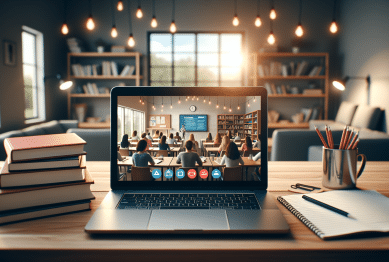Explore how lifelong learning can impact personal growth, career prospects, and societal wellbeing. This guide reveals practical insights for integrating continuous education into everyday life, ensuring you stay curious, adaptable, and empowered throughout your journey.
Embracing the Value of Lifelong Learning
Adopting lifelong learning is a transformative mindset that goes beyond traditional education. It involves a proactive pursuit of knowledge throughout one’s life, not just within the boundaries of formal schooling. By continuously acquiring new skills and updating existing ones, individuals prepare themselves for an ever-changing world. Employers, communities, and families all benefit when adults embrace ongoing growth. Lifelong learning supports adaptability and fuels innovation. Many adults return to learning due to shifting career landscapes, advances in technology, or personal fulfillment. The concept underpins many educational trends and supports versatile development throughout adulthood. Key areas include online classes, community workshops, and peer-led study groups. These methods offer accessible learning routes for people of varying backgrounds. Ultimately, a society committed to lifelong learning is more flexible, informed, and resilient. This approach empowers people to navigate change and propel themselves forward regardless of where their journey starts.
Lifelong learning is not just about structured courses or earning degrees. It manifests in informal experiences, such as reading, volunteering, and attending seminars. Curious individuals often find themselves learning through hobbies, community service roles, or travel. Each of these opportunities compounds personal growth and expands understanding. Many industries now support adult learning by providing access to free or low-cost training resources. This democratization broadens participation and fosters social equity. It is clear that the hunger for knowledge fuels critical thinking and creativity. Technologies like mobile apps and online platforms further support people eager to learn at any stage of life. Motivating factors include staying relevant in the workforce, enriching daily life, and remaining mentally sharp. When encouraged widely, lifelong learning strengthens communities as much as individuals.
Lifelong learning can reshape perspectives and habits over time. Communities that prioritize diverse modes of learning tend to foster social cohesion. When people see others learning, regardless of age or background, it breaks stereotypes and builds inspiration. The impact is profound for job seekers, retirees, and even teenagers. Not everyone learns at the same pace or style, so access to diverse learning environments is critical. By celebrating milestones and sharing success stories, communities make lifelong learning contagious. People who embrace it often report increased confidence, stronger problem-solving skills, and broader social networks. A small step such as taking a digital course can unlock unexpected new opportunities. In this way, lifelong learning translates to lifelong possibilities.
Key Benefits That Lifelong Learners Experience
Embracing continuous education unlocks numerous benefits. On a personal level, lifelong learners typically see enhanced job prospects and greater job satisfaction. Expanding one’s skills helps with career advancement and increases the likelihood of adapting to emerging trends. For example, mid-career professionals often pursue technology training or language classes to stay competitive. This proactive approach also boosts self-worth, reducing anxiety tied to rapid workplace change. Lifelong learning can be a safeguard against job loss due to automation or industry shifts. Those who value skill acquisition usually demonstrate higher confidence, resilience, and adaptability. People who participate in learning activities enjoy their daily routines more and feel empowered to take on new challenges.
Mental and emotional health benefit from learning, too. Ongoing education has been linked to improved cognitive functions, such as memory, focus, and critical thinking. Older adults who engage in new activities often exhibit lower rates of cognitive decline. For younger individuals, learning outside the classroom develops curiosity, emotional intelligence, and social skills. Many organizations now offer wellness seminars and activities that combine physical and intellectual engagement. These programs help lessen stress while encouraging interaction. Socially, lifelong learning strengthens cultural understanding and tolerance by exposing people to diverse ideas and viewpoints. As curiosity leads to exploration, empathy for others grows, helping to knit communities together. Learning can be as simple as participating in a book club or as ambitious as pursuing an entirely new professional certification.
The wider impact of lifelong learning extends to society as a whole. Highly educated societies tend to be more innovative and economically robust. As more individuals engage with lifelong education, local economies benefit from increased productivity, entrepreneurship, and social mobility. There is also a link between lifelong learning and reduced rates of unemployment. Governments and nonprofits encourage adults to upskill through public workshops and funded training schemes. When individuals invest in themselves, everyone gains. This cycle of personal and social improvement illustrates why continuous education is so valuable. The learning journey, after all, never truly ends—it evolves.
How Technology Expands Access to Lifelong Learning
Digital resources have revolutionized the accessibility of lifelong learning. Anyone with an internet connection can tap into a vast spectrum of online classes, lectures, and peer communities. This accessibility means more people can learn new skills regardless of their circumstances. Technology eliminates barriers related to geography, mobility, or traditional scheduling. For instance, employees with unpredictable work hours can study during their free time using mobile apps or self-paced programs. Nonprofit groups, universities, and public libraries collaborate to provide structured digital resources. Educational technology platforms offer tailored learning experiences, adapting content to individual needs and goals.
Massive open online courses (MOOCs), webinars, and podcasts are expanding the definition of what’s possible. MOOC providers collaborate with reputable universities worldwide, giving learners direct access to quality instruction. Many platforms focus on fields with growing demand, such as data science, digital literacy, healthcare, and languages. Certificates from recognized providers can sometimes enhance career prospects. However, even learning for personal enrichment—like coding, art, or public speaking—helps maintain motivation. The rise of digital badges and micro-credentials reflects how technology is reshaping education. Employers increasingly recognize these alternative credentials as evidence of real-world skills.
Blended models also play a role by combining online and face-to-face learning. Digital outreach programs allow learners in remote or rural areas to connect with mentors and peers. This format supports collaboration and a sense of belonging. A major advantage of online learning is the ability to revisit materials, chat with instructors, and participate in global forums anytime. Many institutions now supplement their traditional offerings with digital support and flexible scheduling. This approach democratizes lifelong education, making it truly accessible for a diverse population. The horizon continues to expand as technologies improve and innovative teaching formats arise.
Strategies to Incorporate Lifelong Learning Into Daily Life
Integrating continuous learning into daily routines demands thoughtful planning and motivation. One effective strategy is setting aside dedicated time each week for exploration—whether for reading, skill practice, or reflection. Short, regular study sessions can be more effective than cramming. Microlearning, which involves consuming small, focused educational snippets, can fit easily into commutes or lunch breaks. Working adults often benefit from keeping a learning journal or using digital trackers to monitor progress. Identifying personal interests and aligning them with educational goals supports long-term engagement. Goal-setting—such as mastering a new tool or understanding an industry trend—breaks the process into manageable steps. This reduces overwhelm and increases the likelihood of steady advancement.
Lifelong learning also flourishes through practical application. Volunteering opportunities, local meetups, and hobby groups offer ways to apply skills and build confidence. Libraries and community centers host events that blend social engagement with hands-on education. Building a peer learning circle or joining a club provides both accountability and camaraderie. Adult education programs often include flexible attendance to accommodate varied schedules. Some employers subsidize training, while professional organizations offer workshops and conferences for members. These activities widen the learning net and introduce new perspectives. Actively seeking feedback enhances understanding and deepens the learning experience.
It’s important to celebrate achievements, no matter how small. Acknowledgment builds momentum and satisfaction, reinforcing the habit. Sharing progress with friends, family, or online communities can foster inspiration. Curiosity itself is a key driver, so allowing oneself permission to explore new interests can unlock creative pathways. Maintaining an open mindset is central to lifelong learning. Remember, learning is cumulative: each new experience connects with previous knowledge and skills. With patience, persistence, and creativity, integrating learning into everyday life can become an enjoyable and rewarding habit.
The Role of Institutions and Society in Fostering Lifelong Learning
Institutions play a central role in shaping the culture of lifelong education. Governments, schools, and employers are investing more in infrastructure and resources that facilitate adult learning. Public policy increasingly emphasizes support for midlife education and skill retraining. Universities and colleges offer part-time, distance, and blended courses, making it easier for adults to return to study. Community centers encourage participation through workshops covering topics from financial literacy to the arts. The public sector recognizes that an educated adult population supports innovation and economic resilience. Some countries implement tax incentives or scholarships to reduce barriers to participation. Social initiatives help reach underrepresented populations, ensuring that the benefits are widely shared.
Corporations also contribute by fostering learning-friendly workplaces. Professional development, mentorship, and in-house training are growing trends. Companies that promote ongoing learning often see lower employee turnover, increased job satisfaction, and higher productivity. Partnerships between businesses and educational organizations are expanding, creating more tailored opportunities. Institutions actively collaborate with educational technology providers to integrate new platforms and techniques. Certification programs, apprenticeships, and internships blend theory with practice, helping learners immediately put new skills to use. By recognizing and rewarding growth, organizations inspire others to participate in lifelong education initiatives. The private, public, and nonprofit sectors form a network of support, reinforcing the importance of learning at every stage of life.
Cultural attitudes toward lifelong learning are evolving as well. Celebrating people who pursue education at any age challenges assumptions and removes stigma. Public messaging campaigns, alumni networks, and digital platforms share stories of transformation. When society as a whole values curiosity and self-development, barriers to participation begin to fall. Encouraging intergenerational learning—where older adults mentor younger people or vice versa—enriches everyone. A strong social fabric is built on trust, collaboration, and shared purpose. Institutions that actively cultivate these values help reinforce a cycle of lifelong education, empowering individuals and communities for generations.
Lifelong Learning’s Impact on Economic Mobility and Wellbeing
Lifelong learning isn’t just an individual pursuit—it’s a key driver of economic health. Practical education programs increase the chances for workers across all ages to transition into higher-paying or more stable jobs. As industries evolve, the workforce must too. Educational attainment and skill levels are directly linked to economic mobility. People who regularly update their skills show greater agility in the face of disruption or job displacement. This responsiveness is vital in sectors shaped by rapid technological change. Governments and large employers frequently encourage adults to engage in reskilling or upskilling at every career stage. Lifelong education thus acts as a safety net and springboard.
Besides the economic dimension, learning contributes to broader wellbeing. People who learn continuously tend to report higher life satisfaction and lower stress. Educational activities can strengthen personal relationships and build more meaningful communities. For example, literacy programs improve an individual’s ability to participate in civic life, while financial literacy courses support better decision-making. Lifelong learners are empowered to make informed choices, take active roles in society, and support those in need. Community-based education programs often target health, parenting, or technology, addressing challenges relevant to everyday life. By improving access and quality, these programs spread opportunity more equitably.
Ultimately, the collective impact of lifelong learning is profound. Strong connections grow between education, opportunity, and wellbeing at every level—individual, community, and nation. A commitment to growth and curiosity sustains both economic development and social harmony. As lifelong learners multiply, so too does collective potential. Embracing this journey benefits not just individuals, but everyone around them. For those seeking inspiration, countless stories illustrate the life-changing possibilities unlocked when learning never stops.
References
1. UNESCO Institute for Lifelong Learning. (n.d.). Why lifelong learning matters. Retrieved from https://uil.unesco.org/lifelong-learning/why
2. OECD. (n.d.). Skills for life. Retrieved from https://www.oecd.org/education/skills-for-life.htm
3. World Economic Forum. (n.d.). Lifelong learning is key to unlocking the workforce of the future. Retrieved from https://www.weforum.org/agenda/2020/01/lifelong-learning-global-education-workforce-skills/
4. National Center for Education Statistics. (n.d.). Adult learning and education. Retrieved from https://nces.ed.gov/pubs2020/2020227.pdf
5. Council of Europe. (n.d.). Lifelong learning: Citizens’ key to access and progress. Retrieved from https://www.coe.int/en/web/education/lifelong-learning
6. National Institute on Aging. (n.d.). Cognitive health and lifelong learning. Retrieved from https://www.nia.nih.gov/health/cognitive-health-and-older-adults









